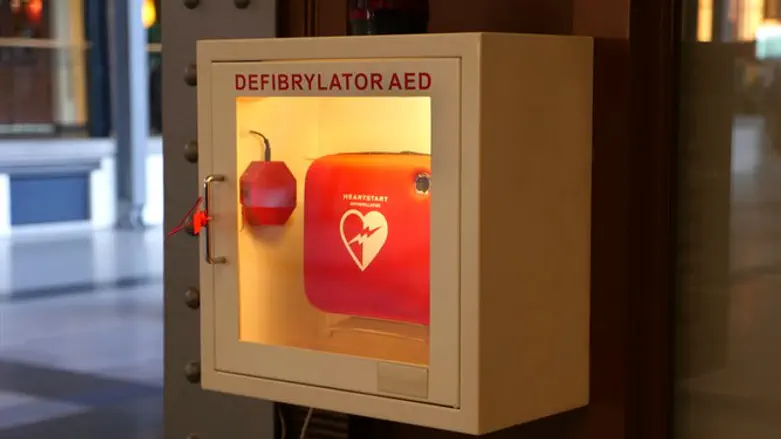
A new solution to unwanted alarms being tripped on Shabbat (the Sabbath) has been found by the Tzomet public research institute for merging Judaism grounded in halakha (Jewish law) with modern life.
The mechanism was installed in an alarm system that protects a defibrillator storage cabinet, housing an electric shock resuscitation device that is mandatory in public places, including synagogues.
The device's storage cabinets have alarm systems in order to avoid unnecessary handling.The alarm activates when the door is opened and stops when the door closes.
Rabbi Gideon Binyamin, Rabbi of Sha'alvim, was asked to approve the installation of such devices vis a vis Sabbath observance. He turned to the Tzomet Institute to find a technological halakhic solution that would minimize Sabbath desecration wherever possible, and for cases in which the door was opened unnecessarily and the alarm was activated in the synagogue on Shabbat.
Engineer Yoni Ben David of the Tzomet Institute, developed such an alarm system. It involves a mechanism that minimizes Shabbat desecration and allows the door to be closed if the door is accidentally opened and the alarm goes off.The sensor in the door that detects opening has been replaced by a grama (secondary effect) mechanism that does not operate at all times and therefore only triggers the alarm after a few seconds from the door being opened.
Also when the door is closed, the alarm is not switched off immediately, but rather with a grama-caused delay, minimizing the violation of Sabbath prohibitions in closing the door by delaying the alarm shutoff.
In 2014 a law was passed to place first aid equipment in public places, requiring a defibrillator in every public place with more than 500 people during the day to be placed in a central and accessible location.